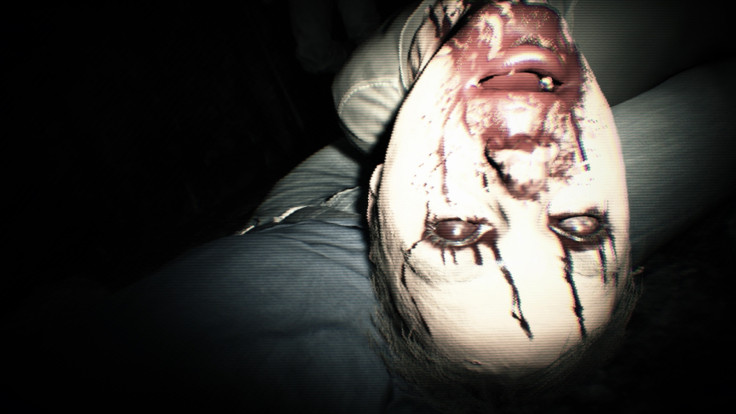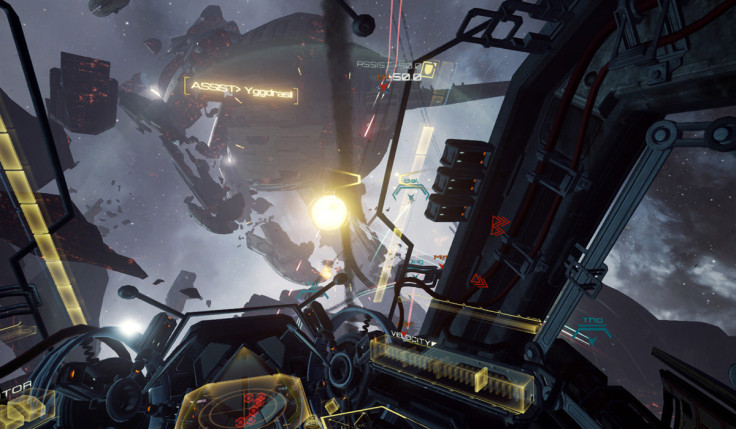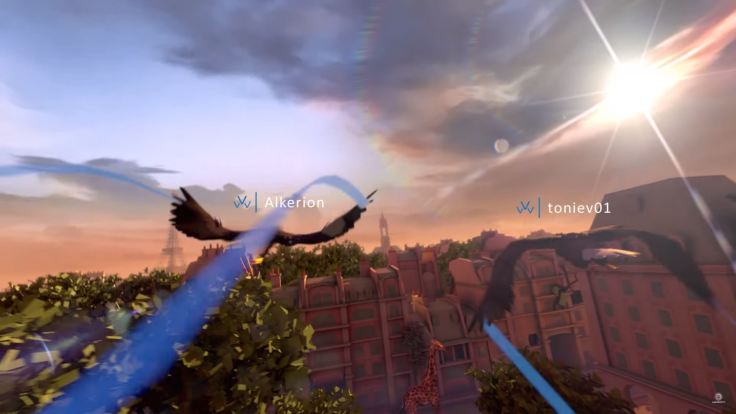Where are the Oculus Rift and PSVR games that aren't obsessed with horror, flying and space?

Virtual reality hit E3 in a big way this year. Those who splashed out on a headset without really having any guarantee of what they'd be able to do with it are probably breathing a sigh of relief, but for those people who aren't big fans of horror or flying, it's starting to look like their options are limited.
Consider some of the most popular VR games announced during the biggest week in the gaming calendar: Resident Evil 7, Farpoint, Here They Lie, Star Trek: Bridge Crew, Star Wars: Battlefront X-Wing. They all have something in common: they are either set in space, or in your worst nightmares.
It's hardly surprising that a lot of VR games come in three flavours: flying, space, and horror (and occasionally a mixture of two or even all of these). The genres suit the medium: VR promises experiences we couldn't usually have in a safe way, and it lets us enter these situations with the use of an exciting new peripheral - our own eyes.
Suddenly, gaming – something that we usually interact with through a controller, an extension of our hands that separates us physically from what's going on on-screen – becomes an actual first-person experience, and that's where it gets interesting.
We can go to space and feel like we are in space. It's one of the most breathtaking experiences, as games like Eve: Valkyrie and Elite Dangerous have shown us, so it's no wonder that it's such a priority for virtual reality.
Most of us will likely never go to space in our lifetimes, even though the dream is getting closer with manned missions to Mars in the works, and celebrities paying for one-off space shuttle trips for a quick zip around the moon. VR makes that possible for a fraction of what Elton John and Justin Bieber are paying, and what's more, the experiences you'll find inside an Oculus Rift or HTC Vive headset are far more exciting and entertaining than having to sit on what amounts to a very expensive space-coach with an A-lister you hate.

Star Trek: Bridge Crew lets you control your own space travel excursion; Star Wars: Battlefront X-Wing gives you the liberating feeling of flying in space, without gravity or orientation; Farpoint puts you in the shoes of an actual astronaut, stranded on a planet. We will likely never set foot on another planet in our own lifetimes, but at least we can pretend.
The same goes for first-person flying. It's something we can't experience without a great deal of personal danger and expense, and you would be more likely to end in a strawberry jam smear and shattered bones than anything positive. Virtual reality gives us the freedom to try experiences like soaring over a city with no mortal peril involved, all in the safety of your own living room, surrounded by soft furnishings rather than deadly drops.
On the other hand, there is the horror genre. Ever since the Oculus Rift was first released to developers, they've been creating jump scares and creepy scenarios like no horror writer has ever managed, because it's infinitely scarier to feel like your own life is at risk than to watch a bunch of teens get hunted down on a cinema screen.
Being trapped in a haunted house, as with Here They Lie, or hunted by malicious forces in an abandoned American farmhouse in Resident Evil 7, are both experiences we probably wouldn't seek out in real life. As with space travel and flying, there's too much danger involved. But unlike VR's two other pet genres, horror is something we've all experienced personally, whether that's seeing a fight break out on our walk home, or imagining faces in the shadows while we try to get to sleep.
The VR horror genre weaves our real-life experiences into more surreal, supernatural occurrences to get deep under our skin. Space travel makes such a good VR setting because we've not experienced it, it's all new. Conversely, horror fits in with VR because it hits so close to home, it's our everyday fears come to life. It's all stuff we've imagined before, and seeing it all in first-person ups the fear factor.

Personally though, I don't want to buy into a platform where fear is one of the driving forces. There's a lot to love about VR experiences – having incredible adventures in relative safety, and being able to download impossible scenarios and plug them into your eyes. But when many of the biggest companies are investing in horror, I just can't see myself choosing to invest in them.
I have anxiety, so horror is less of a fun exercise in pumping out adrenaline and more of an exercise in trying not to have a panic attack. For me, and a lot of others, horror is something that excludes us. A party we're invited to, but don't want to attend. That's the case for space and flying games, too –acrophobia and agoraphobia, two fairly common fears, make those kind of experiences unpleasant and impossible.
Video game companies won't ever design games with every disability, phobia and mental illness in mind, because they're trying to make something that appeals to the masses in the broadest way possible. But the current trend of VR being used for extreme experiences is a double-edged sword. It will offer freedom to most, but it will also shut out those who can't bear it.
These issues might not bring on the death of VR, but they certainly present a challenge: if the future of gaming is this level of interactivity, will the future be an unwelcome place for such a significant portion of the community?
For the latest E3 2016 news head to IBTimes UK's hub page
© Copyright IBTimes 2024. All rights reserved.







